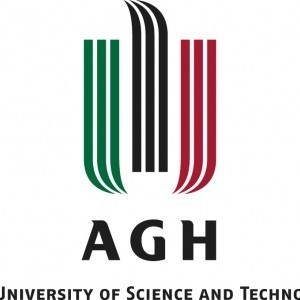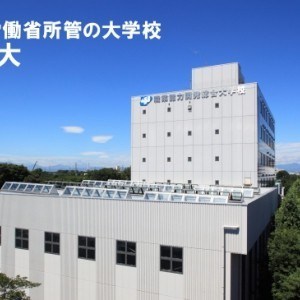Photos of university / #kyotouniversity
Energy Science at Kyoto University is a comprehensive interdisciplinary program designed to equip students with the knowledge and skills necessary to address the world's most pressing energy challenges. This program emphasizes the fundamental principles of energy conversion, storage, and utilization, integrating natural sciences, engineering, and environmental sciences to foster innovative solutions for sustainable development. Students enrolled in this program will engage with topics such as renewable energy sources, thermal and nuclear power, energy policy, and environmental impact assessment. The curriculum is structured to combine rigorous theoretical coursework with practical laboratory and fieldwork experiences, enabling students to apply their learning to real-world problems. The program also promotes collaborative research opportunities, allowing students to work alongside leading researchers and industry experts on cutting-edge projects. Through a combination of lectures, seminars, and research activities, students will develop a deep understanding of the technological, economic, and social aspects of energy systems. Kyoto University's vibrant academic environment and state-of-the-art facilities provide an ideal setting for aspiring energy scientists to thrive. Graduates of the program will be well-equipped to pursue careers in energy technology development, policy formulation, environmental consultancy, or advanced research, contributing to the global effort to achieve a more sustainable and efficient energy future. The program is particularly suited for students passionate about innovation, sustainability, and making a positive impact on society through scientific and technological advancements in the energy sector.
|
Future Energy: Hydrogen Economy |
2 |
|
Fundamental Plasma Simulation |
2 |
|
Socio-Environmental Energy Science I |
2 |
|
System Safety |
2 |
|
Energy policy |
2 |
|
Energy Systems and Sustainable Development |
2 |
|
Fundamental Plasma Simulation II |
2 |
|
Energy Conversion Systems and Functional Design |
2 |
Minimum 4 units of credit by seminar/lecture; research and doctoral thesis under the academic adviser's supervision.
- Admission fee 282,000JPY; Application fee 10,000JPY
- A good master's/Bologna second-cycle degree from a recognized higher education institution outside of Japan OR
- A good master's/Bologna second-cycle degree from a university in Japan as an international student
- Competitive proficiency in academic English
- Personal history
- References(2)
- Degree certificates
- University academic transcripts
- Summary of Master’s thesis
- Research proposal
- Official score report of EFL test (English as a Foreign Language) (IELTS/TOEFL)
- Photocopy of passport
- Official copy of certificate of residence
The financing studies of the Energy Science program at Kyoto University are primarily supported through a combination of domestic and international scholarship options, government funding, and university-sponsored financial aid. Students enrolled in the program can apply for scholarships such as the Japanese Government (MEXT) Scholarship, which provides full or partial tuition coverage along with a living stipend for international students. Kyoto University also offers its own scholarship programs, including the Kyoto University International Education Fund and various faculty-specific scholarships aimed at supporting students engaged in energy-related research projects.
In addition to scholarships, students may access loan programs through Japanese financial institutions, which offer low-interest loans tailored for international students studying at Japanese universities. The university has partnerships with organizations that facilitate research grants and funding opportunities for graduate students involved in cutting-edge energy science research. These grants often cover expenses for laboratory equipment, research materials, and fieldwork necessary for comprehensive studies in sustainable energy, renewable energy technologies, and energy policy analysis.
Furthermore, many students supplement their funding through part-time work arrangements permitted under the terms of their student visas. Kyoto University has a dedicated career support and international student support center that assists students in finding part-time employment opportunities both on and off campus, ensuring they can finance their studies while gaining valuable professional experience.
Research funding at the university is often sourced from government agencies such as the Japan Society for the Promotion of Science (JSPS), which offers grants for scientific research projects aligned with national energy policies and innovation goals. The university encourages students to actively participate in research projects that may have additional governmental or industrial funding, especially in fields related to renewable energy, energy efficiency, and advanced energy storage solutions.
Overall, the financing of the Energy Science program is designed to be accessible to a diverse student body by providing a broad spectrum of financial support options. The university’s comprehensive financial aid system aims to minimize financial barriers, thereby enabling talented students from around the world to pursue advanced studies in energy science at Kyoto University.
The Energy Science program at Kyoto University is a comprehensive and interdisciplinary educational initiative designed to address the increasing global demand for sustainable energy solutions. This program aims to equip students with a deep understanding of the fundamental principles of energy production, consumption, and management, as well as the technological innovations that drive advancements in this vital sector. Students enrolled in this program have the opportunity to engage with cutting-edge research and participate in projects that explore renewable energy sources such as solar, wind, hydro, and geothermal power. The curriculum integrates principles from physics, chemistry, engineering, and environmental science to foster a holistic understanding of energy systems and their impact on society and the environment.
Kyoto University's energy science program emphasizes practical skills alongside theoretical knowledge. Students have access to state-of-the-art laboratory facilities and participate in hands-on experiments, simulations, and industry internships. The program also encourages international collaboration through joint research projects and exchange programs with partner institutions worldwide, preparing students to work effectively in global energy markets.
Faculty members involved in the program are leading experts in fields such as thermodynamics, materials science for energy applications, and sustainable technology development. This ensures that students receive guidance from researchers actively contributing to advancements in energy technology and policy. The program also addresses current challenges related to energy storage, grid integration, and reducing greenhouse gas emissions, preparing graduates to become innovative engineers, researchers, and policymakers committed to transitioning towards a sustainable energy future.
Students graduating from the Energy Science program at Kyoto University are well-prepared to pursue careers in academia, industry, and government sectors. Many alumni contribute to developing new energy technologies, improving existing systems, or shaping policies that promote renewable energy adoption and efficiency. The program’s interdisciplinary approach and strong links to industry provide a competitive edge in the evolving landscape of global energy demands. Overall, the Energy Science program at Kyoto University represents a vital educational pathway for students passionate about making meaningful contributions to sustainable development and energy security worldwide.






